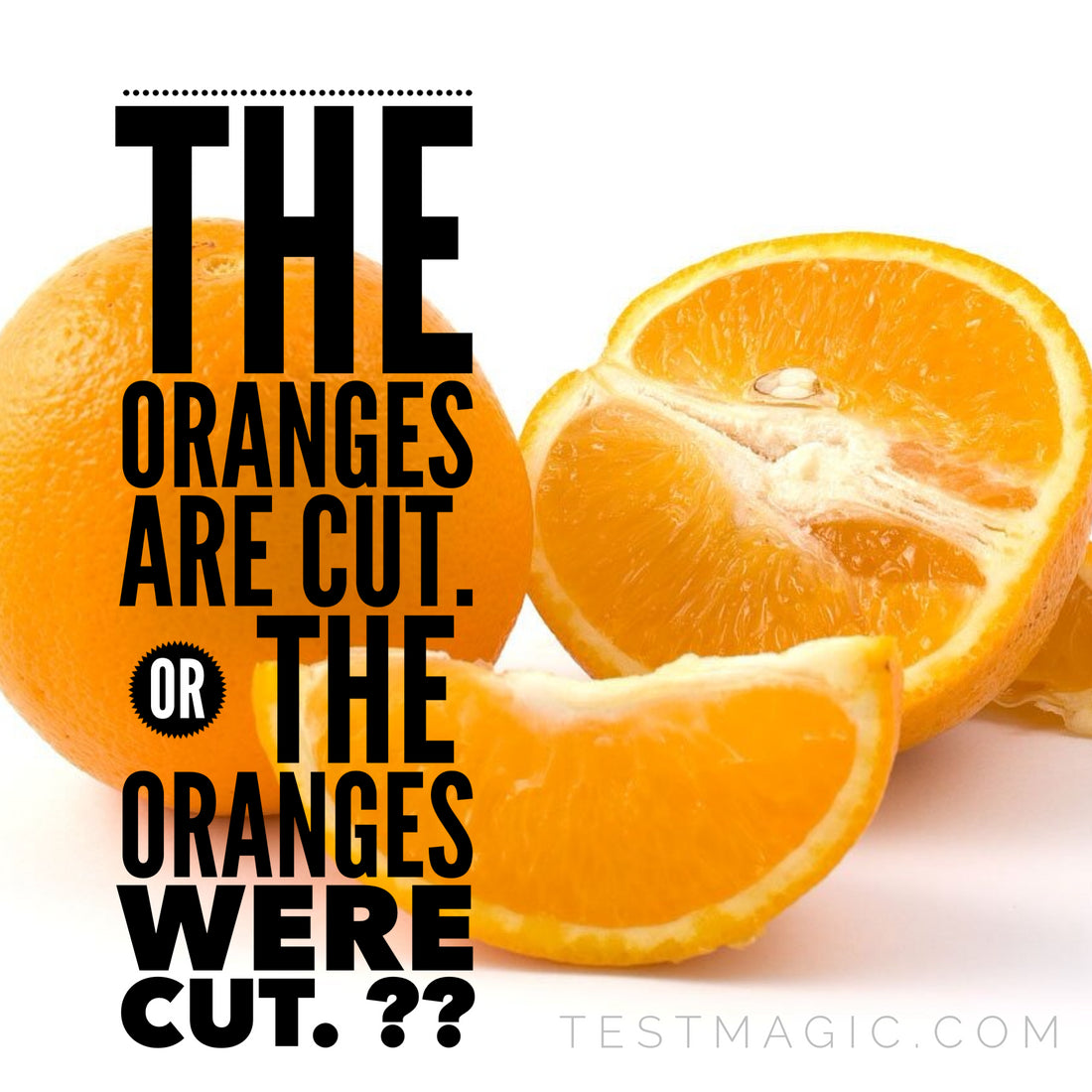
Past Participle vs. Past Tense
Share

A few days ago, I received an email from someone who wanted to know the difference in meaning between two sentences.
The question
Compare the two sentences below and think about how they are different.
- The image is burned in my mind.
- The image has been burned in my mind.
Now, I should note before we begin that there are several different ways to interpret these sentences, but I'm going to focus on what I think the person meant when he asked me this question.
The idiom: to be burned in one's mind
And also before we begin, we should clarify what it means for something to be burned in your mind--it simply means that something has been placed into your memory more or less permanently. (Unless, of course, something tragic happens to your brain, which we hope will never happen.)
For example, you could say that you saw something so beautiful that the image is burned in your mind.
Now the difference between the two sentences.
The verb tense difference: is vs. has been
The first obvious difference between the two is the verb tense.
If I say that something is burned in my mind, then I mean that it is in my mind now. However, if I say that something has been burned in my mind, then, since I am using the present perfect verb tense (which likely means that it was burned in my mind at some indeterminate point in the past).
However, I don't think the person meant to ask me that. Rather, I think he wanted to know why it's possible to use this expression in two different ways: is burned vs. has been burned.
Let's take a closer look at the differences between using burned in these two ways.
Past participle vs. past tense
The simple answer is that in one case (is burned), we are using the word as an adjective, whereas in the other case (has been burned) we are using the word as part of the verb phrase that is paired with the subject and explains what the subject did.
Let me explain a little bit more. If I say the image is burned in my mind, I'm basically saying that the image is presently in my memory. burned is basically an adjective.
If I say that the image has been burned in my mind or the image was burned in my mind, then I'm calling attention to the process of the image being burned in my mind. burned is part of the verb phrase.
Think of it this way: in one sense (is burned) burned is an adjective. This usage denotes that the image is present in my mind.
In the other sense (has been burned), we are saying that it went through the process of being committed to memory.
Note on verb tense: I should note that was burned and has been burned are more or less equivalent for our purposes. The difference between the verbs is the tense: one uses the simple past, the other the present perfect. It doesn't really matter which we use for this discussion.
Some examples
To clarify this let me give you some similar examples.
I should also note that something about English makes this a little bit more confusing (and you probably know this already).
Why this can be a little confusing
The past tense and the past participle of regular verbs in English take the same form, meaning they sound or look exactly the same when you hear them or see them written. For example, talked could be the simple past or it could be a past participle. Compare this with something like went and gone where went is the past tense and gone is a past participle. They are totally different.
Here are the examples.
Is broken vs. was broken
What is the difference between saying that something is broken and something was broken? If we say it is broken right now we are saying it is not functioning. That is to say that the current state is that it is broken. It is not functioning. It is not working, period.
However, we could also emphasize the action of the breaking. We could say that it was broken. For example, we may want to know when the item was broken and we could ask, "When was this broken?" And someone could respond, "Oh, this was broken yesterday."
(And anticipating some questions: Yes, someone could theoretically ask about the state of the toy yesterday: "Oh, I notice that this toy is broken now. Was it also broken yesterday?" In this case, with the context, we would know that what the speaker meant. And yes, in it is possible to create an ambiguous sentence in this case.)
So theoretically you could say that the toy was broken yesterday and today.
Another example coming up!
Is open vs. was opened
Another one that people sometimes ask about is something like this: What's the difference between the store is open and the store was opened? Similarly, the store is closed vs. the store was closed. Again, we have the same difference: In one case, we're emphasizing the present state of the store (is open). In the other case, we are focusing on the action or the process of opening or closing the store (was opened).
Is cut vs. was cut
Finally, I have one more example if things are still not clear. If we say, for example, my arm is cut then I am saying that right now my arm has a cut on it. If I say my arm was cut yesterday then again, I am focusing on the action of the cutting.
I hope this helps. Please feel free to leave a comment or ask a question.
For those applying to college, be sure to check out our tips for writing the UC undergraduate admissions essay as well.
